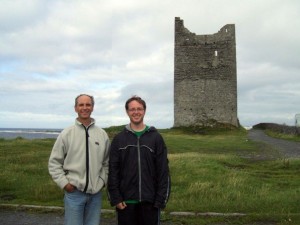Architect of the digital age
On Listing Specific Languages and Technologies on a Resume
25 January 2014
Despite the endorsements you’ll find on my LinkedIn page (thanks to anyone who has left me one!), you’ll find that I don’t often list specific development languages or technologies on the hard copy of my resume. My reasoning for this is threefold: it takes up valuable real estate on my resume which already hasn’t fit on one page for many years now, an alphabet soup tells you little about how in depth I used the language or technology even if I include how many years I was involved with it (sorry Dice!), and most importantly as a Software Engineer I have been formally educated to know that technology is a means to an end. To give you an analogy on the software side, higher-order development in and of itself is like riding a bike and specific languages are merely differentiated bikes. Some are more useful in certain situations than others and just like in the development organization you’ll find casual users and rock stars.
** If I have applied to a job opening in your company, it means I think I have value to add to your organization and that value isn’t limited to a point-in-time toolset.**
I fully admit that there is an argument to be made for including specific industry buzzwords on your resume, including getting past the automated filters many larger corporations use. But it’s similar in strength to the argument for a one-page or two-page resume and there may even be negative correlations between buzzwords and ability. Ultimately you need to do research on your target company to determine what it takes to get your resume past the HR firewall and into the hands of a decision maker. I recommend networking with employees or owners of the company to see if you can find who that decision maker may be. In fact, one recent survey found that up to 44% of new hires are coming from networking these days. So don’t be shy. If you’re in the Cincinnati area, try the Cincinnati Startup Calendar sponsored by Centrifuse and powered by Hapzing to find local networking events for technology professionals.
- Student Loan Bill Tracker
- The Anomaly Response Network
- The Mars Society
- Coca-Cola Scholars Foundation
- TechStars
- Leukemia & Lymphoma Society
- Cystic Fibrosis Foundation
- PRISM
- Free Bikes 4 Kidz
- Cincinnati Works
- Cincinnati Youth Collaborative
Reading:






Social